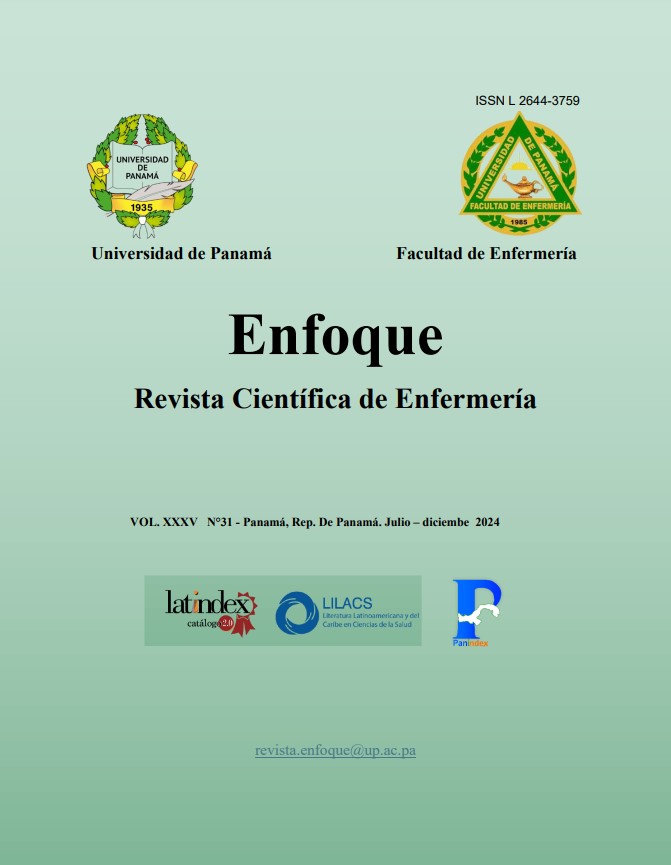

Copyright (c) 2024 Enfoque

Este trabalho está licenciado sob uma licença Creative Commons Attribution-NonCommercial-ShareAlike 4.0 International License.
Os profissionais de enfermagem, ao prestarem assistência dentro de hospitais, ou em qualquer uma das unidades de saúde da rede de serviços, devem ter uma percepção holística da realidade dos usuários e pacientes. Uma forma de conseguir isso é por meio do home care. Essa atividade, típica do enfermeiro, dá uma perspectiva real na qual a pessoa e sua família estão imersas. O objetivo deste estudo de caso é analisar os fatores de risco que podem afetar a saúde. Trata-se de um estudo de uma família residente na comunidade de Kuna Nega que é tratada na unidade de saúde local. A família que apresenta é composta por uma mulher adulta de 25 anos e seus 4 filhos em estado de desnutrição, vivendo em extrema pobreza. A coleta de dados foi realizada por meio de um instrumento de visita domiciliar, aplicado por meio da técnica de entrevista. A intervenção de Enfermagem foi realizada aplicando-se o Modelo de Promoção da Saúde de Nola Pender e a Teoria do Estresse Familiar de Hill.A abordagem foi difícil, uma vez que o problema de fundo é a pobreza e seu baixo nível educacional. Dentro dos recursos disponíveis, foi possível prestar assistência integral, enfatizando alguns fatores de risco, como a insalubridade interna e externa do domicílio, o controle de saúde da mãe e dos filhos, o encaminhamento e acompanhamento pelos profissionais do órgão de saúde.